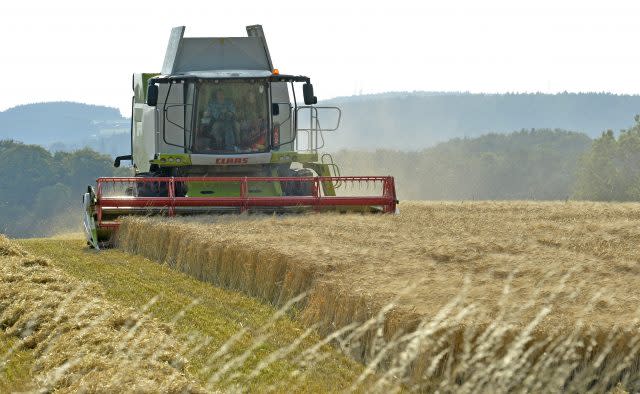Key questions on neonicotinoid pesticides ban

Environment Secretary Michael Gove has announced the Government supports tougher restrictions on pesticides linked to declines in bees. Here are the answers to some of the key questions.
What are "neonicotinoid" pesticides?

They are a group of pesticides designed to protect crops such as oil seed rape and cereals from pests such as sap-sucking aphids and cabbage stem flea beetles.
How do they work?
They are commonly applied in a coating on the seeds, and taken up by the plant into its roots, stems, leaves and flowers and transmitted into pest species when they feed on them, acting on the insect's nervous system, causing paralysis and death.
What is the problem with them?
The weight of evidence now shows the risks #neonics pose to #bees is greater than previously understood #greenbrexit: https://t.co/NYnBE41wx3pic.twitter.com/ZQfB5BBKNW
-- Defra UK (@DefraGovUK) November 9, 2017
Increasing evidence shows they also cause harm to important pollinating insects such as bees, with "sub-lethal" effects such as damaging the ability of bees to forage for food and reducing egg-laying by queen bumblebees.
Environmentalists also say the chemicals can run off into streams, rivers and the wider environment where they can affect other wild plants and creatures.
Why are pollinators important?
Perishing pollinators. Read more: https://t.co/fxvzu7L3gqpic.twitter.com/c718oBDv7p
-- World Economic Forum (@wef) November 6, 2017
Pollinating insects are a key part of the agricultural system in the countryside, adding an estimated £480 million to £600 million to the value of crops in the UK each year, boosting yields and quality of many fruits, vegetables and other produce.
They are also a significant part of food chains in the natural world, and how populations of insects are doing is a key indicator of the health of the wider environment.
What is the current situation with neonicotinoid pesticides?
Three key neonicotinoids - imidacloprid, clothianidin and thiamethoxam - have been banned for use on crops attractive to bees such as oil seed rape, since 2013, as well as from products used by amateur gardeners.
What happens next?
EU countries should use pesticides more sustainably, and we work with them to achieve this goal. Main conclusions->https://t.co/Q37HcC3sVGpic.twitter.com/Yi6mmZMYRc
-- European Commission (@EU_Commission) October 10, 2017
The European Commission has proposed extending the ban to all crops outside greenhouses, which would include crops such as sugar beet and seed treatments for winter cereals.
Mr Gove's announcement signals support for this move, which could be voted on in Brussels in the next few months, with a ban coming in six months later.
If the restrictions are brought in, it remains to be seen what farmers - who say they need the chemicals to protect their crops - will use instead, with concerns raised that they may switch to other harmful pesticides.
(function(i,s,o,g,r,a,m){i['GoogleAnalyticsObject']=r;i[r]=i[r]function(){(i[r].q=i[r].q[]).push(arguments)},i[r].l=1*new Date();a=s.createElement(o),m=s.getElementsByTagName(o)[0];a.async=1;a.src=g;m.parentNode.insertBefore(a,m)})(window,document,'script','//www.google-analytics.com/analytics.js','ga');ga('create', 'UA-72310761-1', 'auto', {'name': 'pacontentapi'});ga('pacontentapi.set', 'referrer', location.origin);ga('pacontentapi.set', 'dimension1', 'By PA Reporters');ga('pacontentapi.set', 'dimension2', '9d9fd74b-8bf3-4dca-a7eb-6a9859baf649');ga('pacontentapi.set', 'dimension3', 'paservice:news,paservice:news:uk');ga('pacontentapi.set', 'dimension6', 'story-enriched');ga('pacontentapi.set', 'dimension7', 'composite');ga('pacontentapi.set', 'dimension8', null);ga('pacontentapi.set', 'dimension9', null);ga('pacontentapi.send', 'pageview', { 'location': location.href, 'page': (location.pathname + location.search + location.hash), 'title': 'Key questions on neonicotinoid pesticides ban'});


